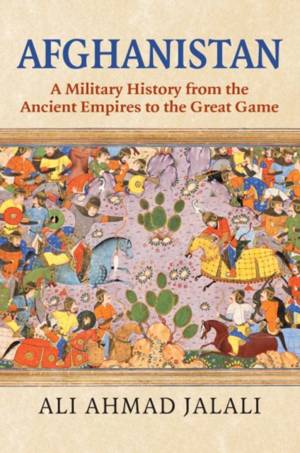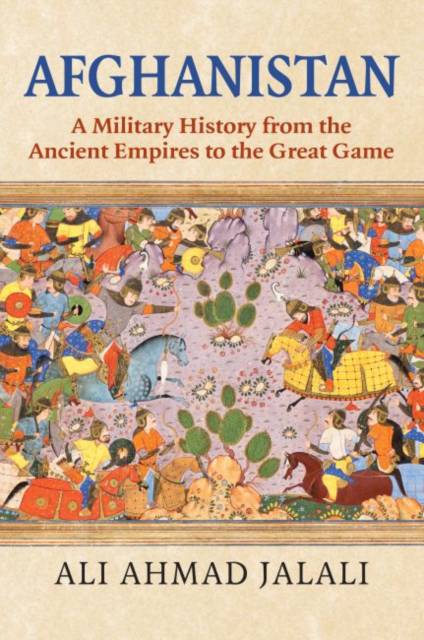
- Afhalen na 1 uur in een winkel met voorraad
- Gratis thuislevering in België vanaf € 30
- Ruim aanbod met 7 miljoen producten
- Afhalen na 1 uur in een winkel met voorraad
- Gratis thuislevering in België vanaf € 30
- Ruim aanbod met 7 miljoen producten
Zoeken
Afghanistan
A Military History from the Ancient Empires to the Great Game
Ali Ahmad Jalali
Hardcover | Engels
€ 90,45
+ 180 punten
Omschrijving
Afghanistan: A Military History from the Ancient Empires to the Great Game covers the military history of a region encompassing Afghanistan, Central and South Asia, and West Asia, over some 2,500 years. This is the first comprehensive study in any language published on the millennia-long competition for domination and influence in one of the key regions of the Eurasian continent. Jalali's work covers some of the most important events and figures in world military history, including the armies commanded by Cyrus the Great, Alexander the Great, the Muslim conquerors, Chinggis Khan, Tamerlane, and Babur. Afghanistan was the site of their campaigns and the numerous military conquests that facilitated exchange of military culture and technology that influenced military developments far beyond the region. An enduring theme throughout Afghanistan is the strong influence of the geography and the often extreme nature of the local terrain. Invaders mostly failed because the locals outmaneuvered them in an unforgiving environment. Important segments include Alexander the Great, remembered to this day as a great victor, though not a grand builder; the rise of Islam in the early seventh century in the Arabian Peninsula and the monumental and enduring shift in the social and political map of the world brought by its conquering armies; the medieval Islamic era, when the constant rise and fall of ruling dynasties and the prevalence of an unstable security environment reinforced localism in political, social, and military life; the centuries-long impact of the destruction caused by Chinggis Khan’s thirteenth century; early eighteenth century, when the Afghans achieved a remarkable military victory with extremely limited means leading to the downfall of the Persian Safavid dynasty; and the Battle of Panipat (1761), where Afghan Emperor Ahmad Shah Abdali decisively routed the Hindu confederacy under Maratha leadership, widely considered as one of the decisive battles of the world. It was in this period when the Afghans founded their modern state and a vast empire under Ahmad Shah Durrani, which shaped the environment for the arrival of the European powers and the Great Game.
Specificaties
Betrokkenen
- Auteur(s):
- Uitgeverij:
Inhoud
- Aantal bladzijden:
- 392
- Taal:
- Engels
Eigenschappen
- Productcode (EAN):
- 9780700632633
- Verschijningsdatum:
- 15/12/2021
- Uitvoering:
- Hardcover
- Formaat:
- Genaaid
- Afmetingen:
- 160 mm x 236 mm
- Gewicht:
- 703 g

Alleen bij Standaard Boekhandel
+ 180 punten op je klantenkaart van Standaard Boekhandel
Beoordelingen
We publiceren alleen reviews die voldoen aan de voorwaarden voor reviews. Bekijk onze voorwaarden voor reviews.











